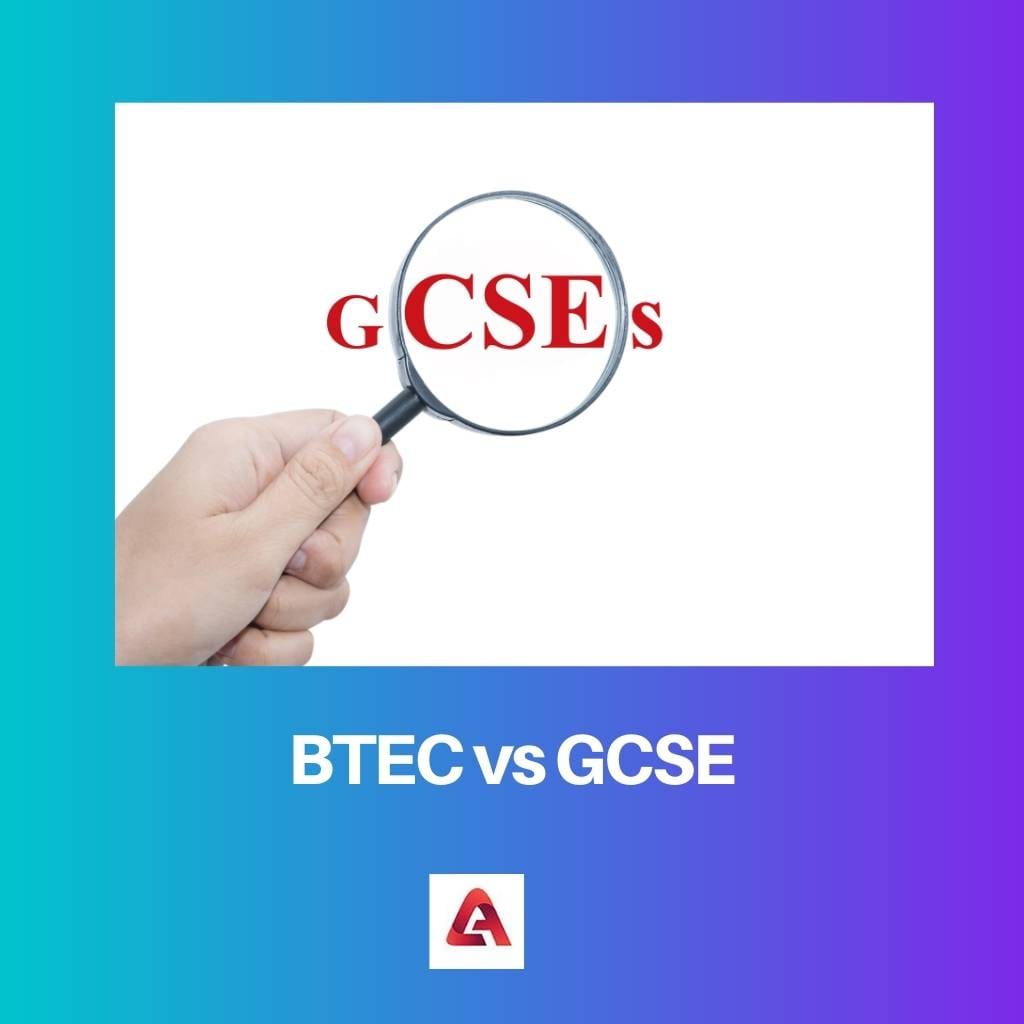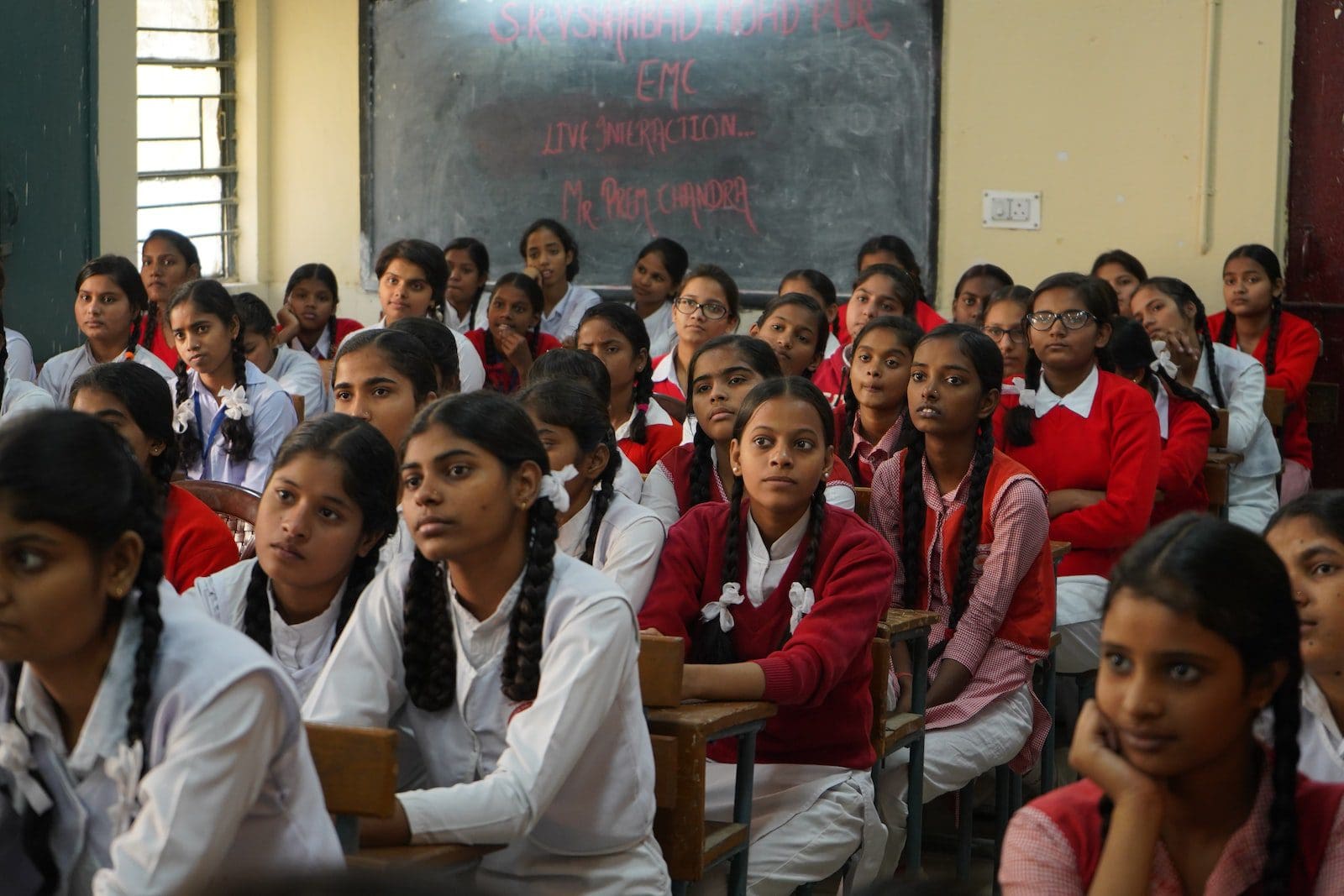Education is the most important aspect of human development. It has been the core of all the innovations and technology. Earlier, the process of providing education was much simpler and affordable too.
The teacher used to teach them in institutes which were very few in number, or even used to visit their house to teach their students. While now the process has been developed so much, universities, colleges, schools, etc., are being developed daily for this purpose.
Several academic qualifications are provided to them to make sure they contribute their best to the country’s progress and development. One example of such is BTEC and GCSE. They both are academic qualifications provided to students.
Key Takeaways
- BTEC (Business and Technology Education Council) qualifications are vocational, emphasizing practical skills and knowledge relevant to specific industries.
- GCSE (General Certificate of Secondary Education) qualifications cover a broad range of academic subjects, assessing students on theoretical knowledge and understanding.
- Students may choose BTECs to gain specific job-related skills, while GCSEs provide more general education as a foundation for further academic or vocational pursuits.
BTEC vs GCSE
BTEC is a practical, specialist course focused on a specific industry or job area. It is more of a vocational course and is equivalent to half of a GCSE. Studies for GCSE take place over a period of two academic years, starting in Year 10 for most students. It is an academic course.

BTEC are globally recognized qualifications and courses that are provided in England, Wales, and Northern Ireland. It can be studied by learners above 16 years of age in any industry of their choice.
The learners are provided to learn through practical, real-life skills. There are several courses available, like business, engineering, art, design, etc.
GCSE is a qualification that is taken by learners between the age group of 14 to 16 years while they are studying at school. GCSE is held in England, Wales, and Northern Ireland schools and is compulsory for all students to study full-time. The students have 5 to 12 subjects.
Comparison Table
| Parameters of Comparison | BTEC | GCSE |
|---|---|---|
| Formed in | 1984 | 1986 |
| Awarded for | Vocational subjects. | Academic as well as applied subjects. |
| Focused on | More coursework than a written exam. | More written exams than practical work. |
| Age of studying | Above 16 years. | 14 to 16 years. |
| Course taken | It is taken after school days. | It has to be studied while at school. |
What is BTEC?
BTEC, or Business and Technology Education Council, is a qualifications provider mainly in England, Wales, and Northern Ireland. Young students or learners who are interested in a particular sector or industry are provided with the required skills to be prepared for future jobs.
BTEC is opted for by students who are above the age of 16 years and have finished their schooling.
More than 2,000 BTEC courses are provided across 16 sectors like business, engineering, art and design, and many more, among which the student can choose their desired field.
There are different levels of BTEC, ranging from foundational learning at high school to professional courses at the post-graduate level, which are mainly divided into 3 levels.
BTEC Firsts, in which entry-level to level 2 are included. This level provides an introduction to the work. BTEC nationals, in which level 3 is included.
BTEC Apprenticeship includes levels 2 to 5 across numerous sectors. Students can study at level 2 or 3 along with their academic qualifications or as an apprenticeship.
BTEC focuses more on the course work than the written exams and, thus, provides students to learn maximum through practical hands-on, real-life skills.
Students who opt for BTEC have to study full-time either in college or jointly between a school and college. BTEC qualification includes more written exams than practical work.

What is GCSE?
GCSE, or General Certificate of Secondary Education, is a set exam which is taken by the students of England, Wales, and Northern Ireland while at school.
Qualifying for the GCSE is marked as completion of secondary education in the United Kingdom. All students lying between 14 to 16 years of age have to compulsorily take the exams while studying full-time at school.
The students have 5 to 12 subjects that they have to study. It is a compulsion for all students to study 3 main subjects English, mathematics, and science.
Before pursuing the A-levels, the student must pass 5 or more GCSE exams at grade 4, 5, or above. GCSE qualifications mainly focus on studying the theory of subjects with some practical work.
The GCSE qualifications open ways leading to work, further studies, and apprenticeship. The GCSE results of an individual student affect several factors like the subjects one can opt for further studies qualifications, eligibility for the university, carrier prospects, and many other factors.
GCSE is regarded by universities as the highest pre-A level qualification for students studying in the UK. The GCSE is considered the replacement for the old O level and CSEs. GCSE exams are given by the students after studying the courses for 2 years.

Main Differences Between BTEC and GCSE
- The Business and Technology Education Council (BTEC) was formed in 1984 by the Business Education Council and the Technician Education Council, whereas the General Certificate of Secondary Education (GCSE) was formed in the year 1986.
- The BTEC is mainly awarded for vocational subjects only, whereas, on the other hand, the GCSE is awarded for both academic as well as applied subjects.
- BTEC is more focused on the course work than the written exams, whereas, in GCSE, the main focus is more on written exams than practical work.
- BTEC is studied by learners who are above 16 years of age, whereas the GCSE is studied by learners who lie between the age group of 14 to 16 years.
- BTEC is opted for after the school days whereas the GCSE has to be studied full time in the school days and it is compulsory in the schools.

- https://www.tandfonline.com/doi/abs/10.1080/0924345970080201
- https://www.tandfonline.com/doi/abs/10.1080/0924345950060401

The detailed comparison table and explanations provide an insightful view of the BTEC and GCSE qualifications. Educators and students alike can benefit from the comprehensive overview of these academic pathways.
The comprehensive information about BTEC and GCSE qualifications is an excellent resource for students and parents to make informed decisions about their educational pathways.
The article’s in-depth examination of BTEC and GCSE qualifications showcases a high level of understanding and analysis. This is valuable for everyone navigating the educational system.
The article effectively outlines the fundamental differences between BTEC and GCSE qualifications, allowing readers to gain substantial knowledge about both options. The importance of these qualifications in contributing to the academic and vocational pursuits of students is well articulated.
The article provides a detailed comparison between BTEC and GCSE qualifications, including their history, content, application, and significance in the education system. Both qualifications have their unique features and cater to particular student populations. This article is informative for anyone interested in understanding the academic landscape of England, Wales, and Northern Ireland.
As an educator, I appreciate the depth of information provided in this article. The breakdown of key takeaways, comparison, and detailed insight into BTEC and GCSE qualifications is incredibly useful for teachers, students, and parents.
I agree with the comprehensive analysis of BTEC and GCSE qualifications. It’s essential to recognize the distinctions between vocational and academic pathways to guide students effectively in their educational journey.
The detailed information about BTEC and GCSE qualifications in this article is beneficial for gaining an in-depth understanding of the educational landscape. The article’s approach to presenting both qualifications is commendable.
The detailed exposition of BTEC and GCSE qualifications enhances readers’ understanding of various educational pathways. This thorough analysis provides valuable insights for students and educators.
The article’s in-depth examination of BTEC and GCSE qualifications is a valuable resource for understanding the distinctive features of these academic pathways. The detailed comparison and explanation provide critical insights for educators and students.
The comprehensive analysis of BTEC and GCSE qualifications in the article is beneficial for students, parents, and educators seeking to understand the diverse educational pathways available. The thorough discussion highlights the significance of these qualifications in the academic domain.
The article’s detailed comparison and analysis of BTEC and GCSE qualifications offer valuable insights into the educational landscape. This informative content is essential for making informed decisions about academic pathways.
The article’s comprehensive explanation of BTEC and GCSE qualifications is valuable for anyone seeking to comprehend the educational choices available to students. The detailed insights into different academic pathways are crucial for informed decision-making.
The detailed insights into the BTEC and GCSE qualifications are commendable. The article covers essential information that benefits students, educators, and individuals involved in the academic realm.
The comprehensive analysis and comparison of BTEC and GCSE qualifications in the article emphasize the significance of these academic pathways in shaping students’ futures.
This article effectively presents the fundamental aspects of BTEC and GCSE qualifications, providing valuable knowledge for those seeking to understand these academic paths.